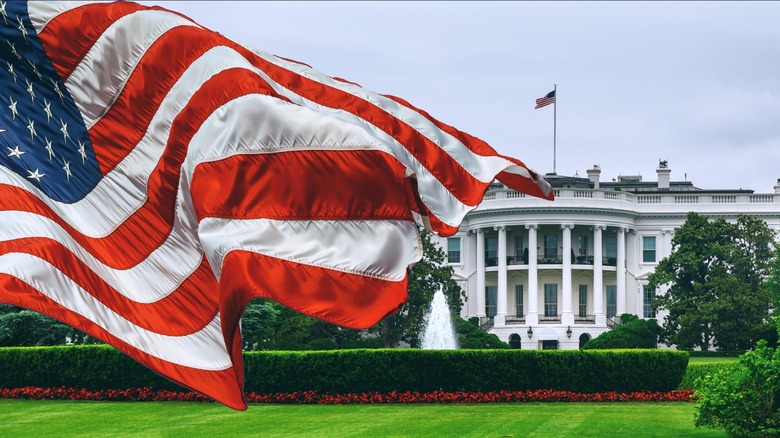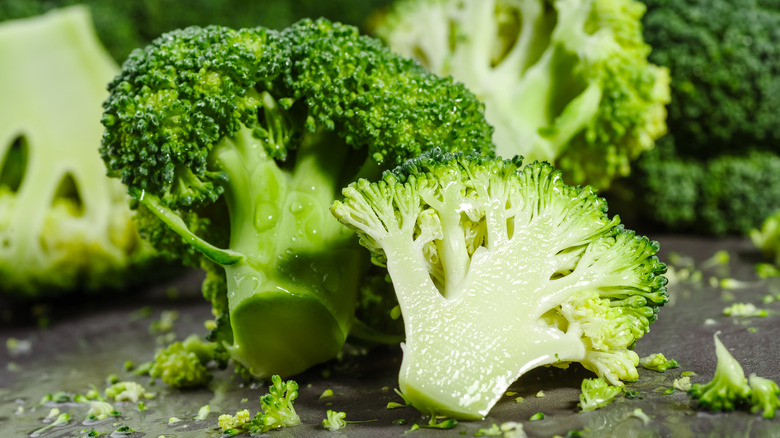The Vegetable That Was Once Banned From The White House
It's well known that the Queen of England has many rules associated with food and eating. Anything too starchy and anything with garlic, for example, are forbidden at Buckingham Palace. That's just the way it goes for royals — and apparently the president of the United States. Mental Floss shares that from spring 1990 through the end of the George H.W. Bush administration, broccoli was banned from being served at both the White House and on Air Force One.
Sure enough, an article from a March 1990 issue of The New York Times confirms this to be true. "I do not like broccoli," Bush announced in a press conference. "I haven't liked it since I was a little kid and my mother made me eat it, and I'm president of the United States, and I'm not going to eat any more broccoli." Instead of broccoli, Bush stuck to pork rinds and fast food, the Times reported. His healthiest food choices were yogurt and oat bran, but they'd always be washed down with Butterfingers.
Broccoli producers tried to change the president's mind
Because George H.W. Bush refused to be served broccoli, the Los Angeles Times reported that he effectively turned away 10 tons, or two truckloads-worth of the vegetable upon his declaration. The broccoli, fortunately, was not wasted, but donated to a local food bank in DC. Broccoli growers, expecting to face the consequences, refused to go down without a fight. Attempting to persuade the president's decision, they delivered their best broccoli-based recipes to the White House in hopes of getting the kitchen's attention, and ultimately changing the president's mind to un-ban the broccoli.
Needless to say, Bush Sr. could not be persuaded; however, broccoli growers actually didn't end up suffering any losses. Apio Produce explained to the LA Times that the president's statement turned out to be free publicity, with broccoli sales rising by 10%. In the end it was a win-win. The former president didn't have to continue eating his least favorite vegetable, and produce companies saw an increase in broccoli sales.

